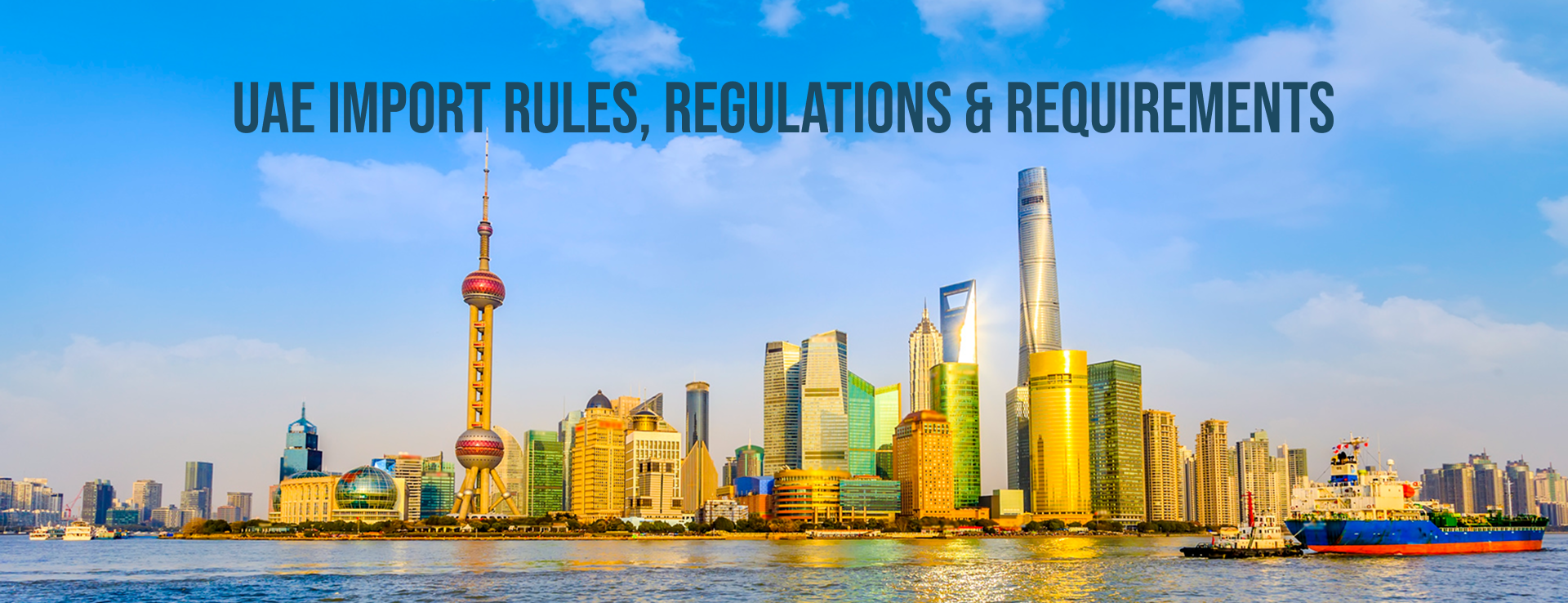
UAE Import Rules & Regulations: A Complete Guide For Businesses
UAE is indeed one of the world’s dynamic marketplaces, and navigating through its import regulations may seem complex at first. But, with this cheat sheet, you’re all set to follow UAE’s import rules like a pro. Read on to simplify your import game with these tips and tricks.
Why Do UAE’s Import Rules Matter?
Before we delve deeper into UAE’s import regulations, let’s decode the hype behind such rules. Why do they even matter? Well, in its simplest sense, UAE’s import regulations provide global trade companies with guidelines to import in the nation.
Think of it as a handbook that transforms complex rules into golden opportunities with all the ingredients to make a successful import recipe, including what products can be imported into the UAE, and what cannot, traps to avoid, documents needed, etc.
Meeting UAE’s Gatekeepers Of Trade
Before entering the bustling markets of UAE, shipments must pass the green signal of the nation’s trade authorities. In other words, global trade companies must adhere to the terms & conditions set by the trade regulatory bodies of UAE, including the Federal Customs Authority (FCA), the Department of Economic Development (DED), the Emirates Authority for Standardization & Metrology (ESMA), and the UAE’s Ministry of Economy, apart from several others.
Navigating Through The Paperwork Maze
Beyond that, whether you’re a seasoned business owner or a novice in the vast realm of global trade, it’s important to always get your paperwork in shape. Here are a few documents that should be part of your checklist, especially if you plan to import in the UAE.
1. Bill of lading/road manifest/ airway bill
First and foremost is the transportation invoice. Whether you’re planning to send your shipment by sea, air or road, it’s essential for you to procure a copy of the Bill of Lading, Road Manifest or Airway Bill – a parchment safeguarding the ownership of the shipment by enlisting all the details of the cargo from what’s in it, where it’s headed & how it’s being shipped to who’s sending it & to whom it’s being sent.
2. Commercial invoice & packing list
Following is the commercial invoice & packing list. While it has the same details as the Bill of Lading, the commercial invoice differs slightly by not indicating who owns the goods. Instead, it enlists the price, value and quantity of the goods being imported, in addition to the trade terms and conditions between both the buyer and seller.
Beyond that, the packing list depicts how the shipment is packed, its overall weight & the unique Harmonized (HS) code of each item in the shipment.
3.Certificate of origin
Another document that can't be missed from your paperwork portfolio is the Certificate of Origin, which shows the origin of the imported goods to levy tariffs and taxes accordingly.
4. Import permit
If you’ve got a few restricted items under the UAE import products list, then you need an import permit to let it through the nation. However, make sure to get it signed off by a competent authority to avoid any legal pitfalls that may arise on the way.
5. Duty exemption letter issued by Ministry of Finance
If you wish to import equipment, raw materials, machines, or any other material often used for industrial purposes, you need to add a Duty Exemption Letter issued by the Ministry of Finance to your paperwork pile. This, in its basic sense, helps to exempt these items from custom duty to promote industrialization in the nation.
What’s restricted & what’s not?
If you’ve got your paperwork in check, the next step for you is to ensure that your shipment doesn’t have items that are a strict NO-NO when importing into the nation. In fact, as per government regulations, flammable goods, radioactive materials, arms & ammunition, narcotics are all prohibited in the nation, and may be prone to legal penalties if found. So, the moral of the story? Keep these red flags away from your shipment.
Taxes & Tariffs Decoded
When it comes to UAE's tariffs on imports, remember this rule of thumb: UAE assesses its customs duties based on three factors (CIF) - Cost, Insurance & Freight, all together are calculated at 5% rate. However, in the case of tobacco products & alcohol products, customs tend to be calculated at 100% and 50% respectively.
Mainland vs. Free Trade Zones: Are The Rules All The Same?
If you’re wondering whether or not UAE’s import regulations vary at mainland & free trade zones, then the answer is Yes. The nation’s import regulations tend to vary between mainland zones and free trade zones.
But why? Well, even though a free trade zone is an integral part of the nation, it falls beyond the jurisdiction of the customs department. Therefore, they tend to have slight variations in importing rules & regulations, unlike mainland zones.
In fact, a free trade zone licensee can import goods into the nation without paying customs. What’s more is that they get a few perks, including storing their goods for an unlimited time, depending on the type of license they hold.
In a nutshell
Now that you’re aware of the import regulations in UAE, what’s in it for you? Well, you need to carefully plan & understand what the market holds in store and comply with regulations to reduce potential challenges that may arise.
Frequently asked questions (FAQs)
1. What are the main imports of UAE?While the list of UAE import products is quite vast, it mainly imports food, machinery, chemicals, transportation equipment, textiles & metals.
2. How can I import goods to the UAE?Global trade companies can import to the UAE by providing the necessary paperwork including the bill of entry, certificate of origin, commercial invoice, customs duties exemption forms, and a detailed list of shipments to be sent.
3. What are prohibited imports in UAE?Narcotic substances, counterfeit currency, recreational drugs, and pirated content are a few import products that are prohibited in the UAE.




